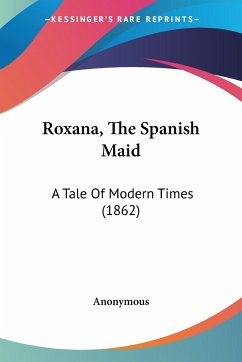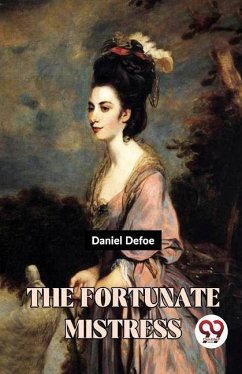
Roxana, The Fortunate Mistress
A 1724 novel by Daniel Defoe
Versandkostenfrei!
Versandfertig in 1-2 Wochen
19,99 €
inkl. MwSt.
Weitere Ausgaben:

PAYBACK Punkte
10 °P sammeln!
Roxana (1724), Defoe's last and darkest novel, is the autobiography of a woman who has traded her virtue, at first for survival, and then for fame and fortune. Its narrator tells the story of her own 'wicked' life as the mistress of rich and powerful men. A resourceful adventuress, she is also an unforgiving analyst of her own susceptibilities, who tells us of the price she pays for her successes. Endowed with many seductive skills, she is herself seduced: by money, by dreams of rank, and by the illusion that she can escape her own past. Unlike Defoe's other penitent anti-heroes, however, she ...
Roxana (1724), Defoe's last and darkest novel, is the autobiography of a woman who has traded her virtue, at first for survival, and then for fame and fortune. Its narrator tells the story of her own 'wicked' life as the mistress of rich and powerful men. A resourceful adventuress, she is also an unforgiving analyst of her own susceptibilities, who tells us of the price she pays for her successes. Endowed with many seductive skills, she is herself seduced: by money, by dreams of rank, and by the illusion that she can escape her own past. Unlike Defoe's other penitent anti-heroes, however, she fails to triumph over these weaknesses. Roxana's fame lies not only in the heroine's 'vast variety of fortunes', but in her attempts to understand the sometimes bitter lessons of her life as a 'Fortunate Mistress'. Defoe's achievement was to invent, in 'Roxana', a gripping story-teller as well as a gripping story.














